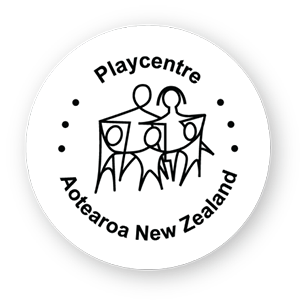Power Tools Come To Play
When children and parents bring their ideas and interests to the Playcentre table, play takes on a life of its own and ‘things can happen!’
Stephen O’Connor is a hands-on man, who relishes a challenge and loves the time he gets to spend with his kids. During his time at Rolleston Playcentre with his youngest daughter Hayley, he discovered a place where ‘things can happen because parents get involved’ – parents like Steve, who bring their interests and enthusiasm to the table.
In a previous life he was dairy farmer, which as Steve points out ‘is far more than milking cows. You have to keep everything running. I was always fixing things’. Well it turns out there are always problems to solve and opportunities to use your skills when you’re part of a Playcentre. ‘I became the Maintenance Man. And also the Treasurer – my wife nominated me!’ he laughs.
Of course, Steve’s contribution to Rolleston Playcentre ran deeper (and made more mess!) than these tidy titles would suggest. His greatest contribution was his genuine interest in the children and his eagerness to get involved. Especially if it meant fixing or creating things!
President, Rebecca Congalton, describes one such occasion earlier in the year. ‘Another parent, Sarah, had mentioned that she had seen a neat idea for storing felt pens by drilling holes in logs. Well Steve appeared at Playcentre armed with tree stumps and a power drill. He sized up the pens and started working on creating the holders. The kids were really interested in the power tools. So, being Playcentre, they were able to have a go with the drilling too.’
One of the key elements of Playcentre is that the play is child-initiated and directed. And that is certainly and beautifully true. But occasionally – when a grown-up has a cool idea and another has the skills and tools on hand to get it done – the play (or work) is instigated by the big people: those kids of the 70s, 80s and 90s still want in on the action, even if, ostensibly, their ‘play’ is a purposeful undertaking like creating pen holders for the felt tips.
As this story played out, the kids took to the tools and turned the whole activity into an extension of their play (or work), peeling off the bark and sanding the logs. Steve recalls that, ‘after the kids made them, they were too tight. I had brought along the wrong drill bit.’ Of course, for the kids, the size of the drill bit was immaterial. They had a blast testing their carpentry skills. And Steve got to ‘play’ some more because he ‘had to take them home to do some improvements so that they would function as they were supposed to do’.
Hayley has now moved on to school. Thankfully the connection with the O’Connor family is still strong. ‘I am still on call whenever they need me!’
And, as Rebecca points out, ‘we are reminded of the O’Connor family and their special contribution to our centre whenever we look at our pen holders’.
Steve talks about what Hayley got out of Playcentre. She loved ‘the variety of learning, and all the contact with parents. Playcentre was always her favourite – because it is driven by children. And, because parents get involved, things can happen’.
Debates about who started it aside, at Playcentre, play has a tendency to take on a life of its own. When people of all ages bring their ideas and interests to the mix, play can evolve in wonderful, unexpected ways; the distinction between adults’ work and children’s play gets blurred; and often it is near-impossible to pinpoint exactly when and how the play started, and, excitingly, where it will lead.
By Kate Barber

